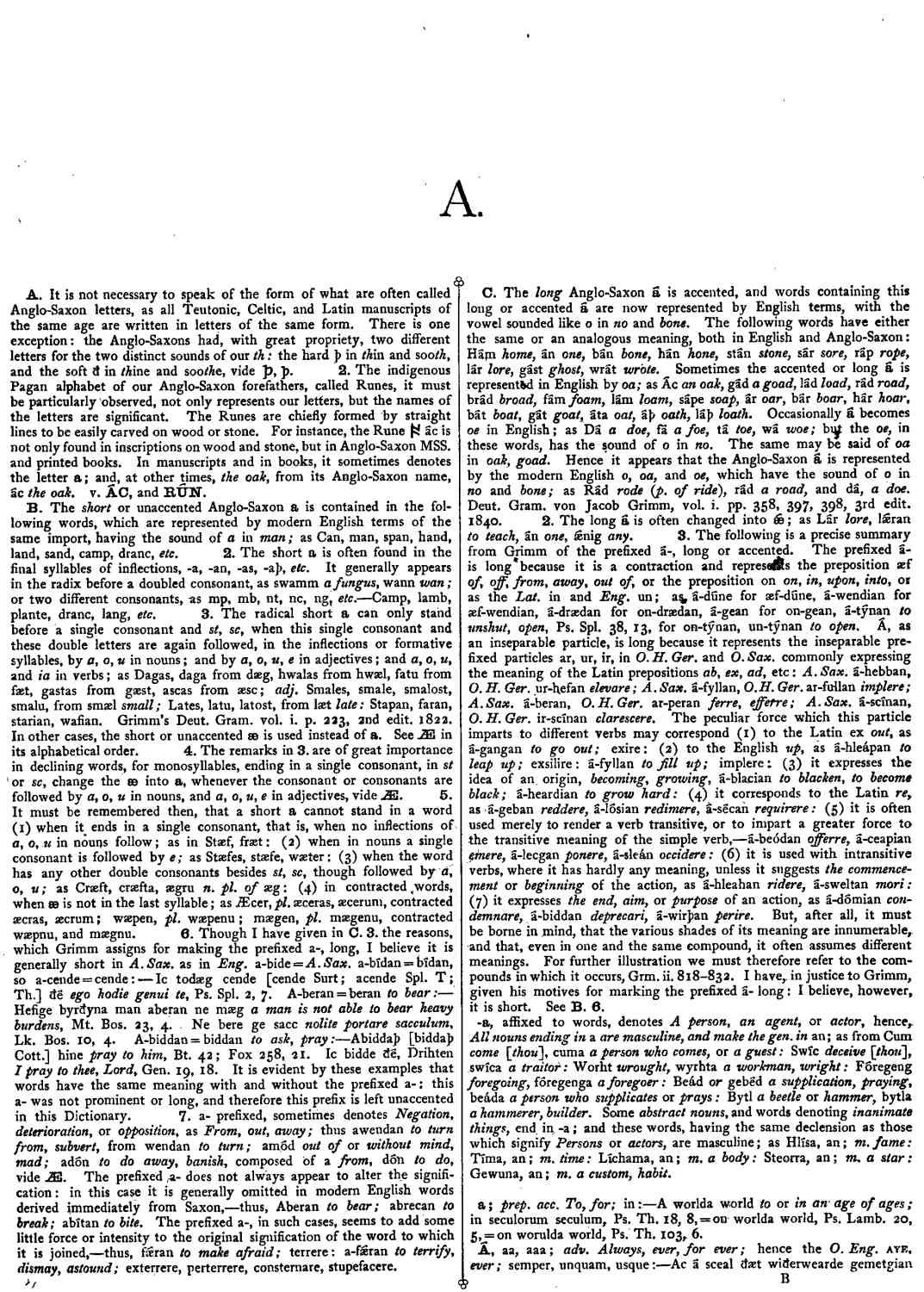Á
- adverb
-
Ac á sceal ðæt wiðerwearde gemetgian
but ever must the contrary moderate,
- Bt. 21; Fox 74, 19.
-
Án God á on écnysse
one God to all eternity [lit. one God ever, in eternity ],
- Homl. Th. ii. 22, 32.
-
Á on écnisse
usque in æternum,
- Jos. 4, 7.
-
Ic á ne geseah
'I not ever saw' = I never saw,
- Cd. 19; Th. 24, 10 ;
- Gen. 375.
-
Á = ǽfre: Nú, sceal beón á on Ií abbod
now, there shall always [ever] be an abbot in Iona,
- Chr. 565; Th. 33, 2, col. 2.
-
Nú, sceal beón ǽfre on Ií abbod
now, there shall ever [always] be an abbot in Iona,
- Chr. 565; Th. 32, 11; 33, 4, col. 1.
-
He biþ aa [áá MS.] ymbe ðæt án
he is for ever about that one [thing ],
- L. Th. ii. 310, 25.
-
Aa on worulda woruld
semper in seculorum seculum,
- Ps. Th. 105, 37.
-
Nú and aaa [ááá MS.], to worulde búton ǽghwilcum ende
now and ever, to a world without any end,
- Bt. 42; Fox 260, 15.
-
Á world
for ever,
- Ex. 21, 6.
-
Á forþ
ever forth, from thence,
- Bt. Tupr. 303, 31 .
Bosworth, Joseph. “Á.” In An Anglo-Saxon Dictionary Online, edited by Thomas Northcote Toller, Christ Sean, and Ondřej Tichy. Prague: Faculty of Arts, Charles University, 2014. https://bosworthtoller.com/4.
Checked: 1